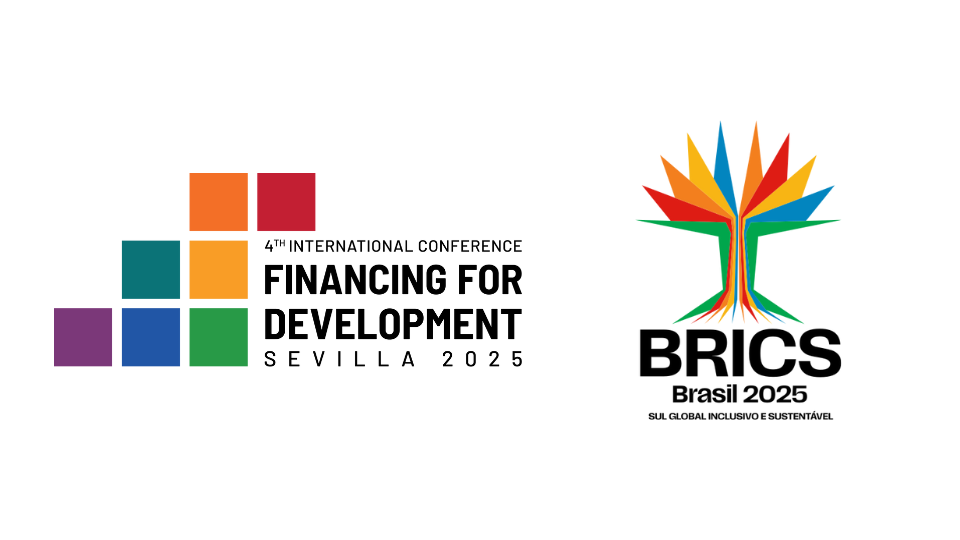Following FfD4 and BRICS summits, ICN warns that financing strategies must centre the health workforce

The International Council of Nurses (ICN) welcomes the agreements to strengthen health and development funding and revitalize multilateralism and global solidarity that emerged from two pivotal meetings: the 4th International Conference on Financing for Development (FfD4), which concluded on 2 July 2025, and the BRICS summit of the eleven largest emerging economies, which ended on 7 July. While these gatherings signal a welcome return to multilateral cooperation, ICN emphasizes that stronger commitments to investment in the health workforce are needed to deliver on their ambitious health and development goals.
Both gatherings come at a critical moment when investment in health systems and health workers is urgently needed, amidst increasing health needs, turbulent geopolitical tensions and conflicts, and a worsening climate crisis. Recent freezes and cuts to development aid, coupled with mounting threats to multilateralism, have contributed to an exceptionally challenging health financing environment. As the FfD4 Sevilla Commitment acknowledges, developing countries are facing a widening $4 trillion financing gap, and the 2030 Sustainable Development Goals (SDGs) including Universal Health Coverage (UHC) are severely off track.
Dr José Luis Cobos Serrano, ICN’s President, remarked:
“ICN applauds both meetings’ strong and strategic focus on funding health and development and addressing global inequalities. We particularly welcome their commitments to equitable and sustainable financing, including through possible debt relief mechanisms for vulnerable low-income countries, many of which currently have to spend more on servicing their debts than on vital health services.
‘Despite these advances, there is a glaring absence of health workforce considerations in these documents, which represents a significant oversight. The key to delivering on our global health goals lies in the people who translate health strategies into reality, delivering care and addressing our world’s major and growing health issues.
‘At this year’s World Health Organization (WHO) World Health Assembly, member states unanimously decided to extend the Strategic Directions on Nursing and Midwifery, including accelerated investment in the nursing workforce, but we are not seeing the needle move on this despite our urgent workforce crisis. We currently have a major shortage of nurses that is nothing less than a global health emergency, and without ensuring that funding and investment is directed to the health workforce, we will not be able to deliver on our collective health and development commitments. We simply cannot achieve health for all without nurses for all.”
At both gatherings, leaders also urged decisive action on the climate crisis, which is driving severe health impacts around the world. The BRICS Declaration includes strong calls for a just transition backed by accessible and timely climate financing for developing countries, though the BRICS countries did not commit to phasing out fossil fuels, the single biggest contributor to climate change and a major cause of climate-related health harms.
The BRICS Declaration further highlights the importance of the World Health Organization in coordinating global health efforts and calls for a “robust and adequately funded WHO” as the pathway to promote health equity and meet the world’s health challenges.
Howard Catton, ICN’s CEO, emphasized the need to prioritize the health workforce within multilateral decision-making and WHO. He said:
“We are hopeful that the focus on renewing multilateralism at FfD4 and BRICS will accelerate global solidarity in health financing, including ensuring necessary funding for WHO’s important programme of work. However, we must ensure that the health workforce is properly prioritized in these efforts.
'ICN is extremely concerned that WHO’s new proposed organizational structure, which combines health workforce, nursing, and the WHO Academy into a single department, sidelines the importance of the health and care workforce. The health workforce is all too often overlooked — but we have made important advances in ensuring that health and care workers are no longer invisible but recognized as invaluable in health strategy and health outcomes, including through the Strategic Directions for Nursing and Midwifery.
'This new structure risks undermining or even reversing the progress that has been made to strengthen and invest in the health workforce. WHO has continually reminded us that nurses and other health workers are the centre of global health — the backbone of our health systems. We cannot let our vital health workforce become mere metatarsals at the periphery of global health strategies and organizations. Delivering on the SDGs and UHC and realizing our vision of health for all requires a bold and urgent commitment to funding investment in nurses and health workers as the foundation of care, everywhere.”